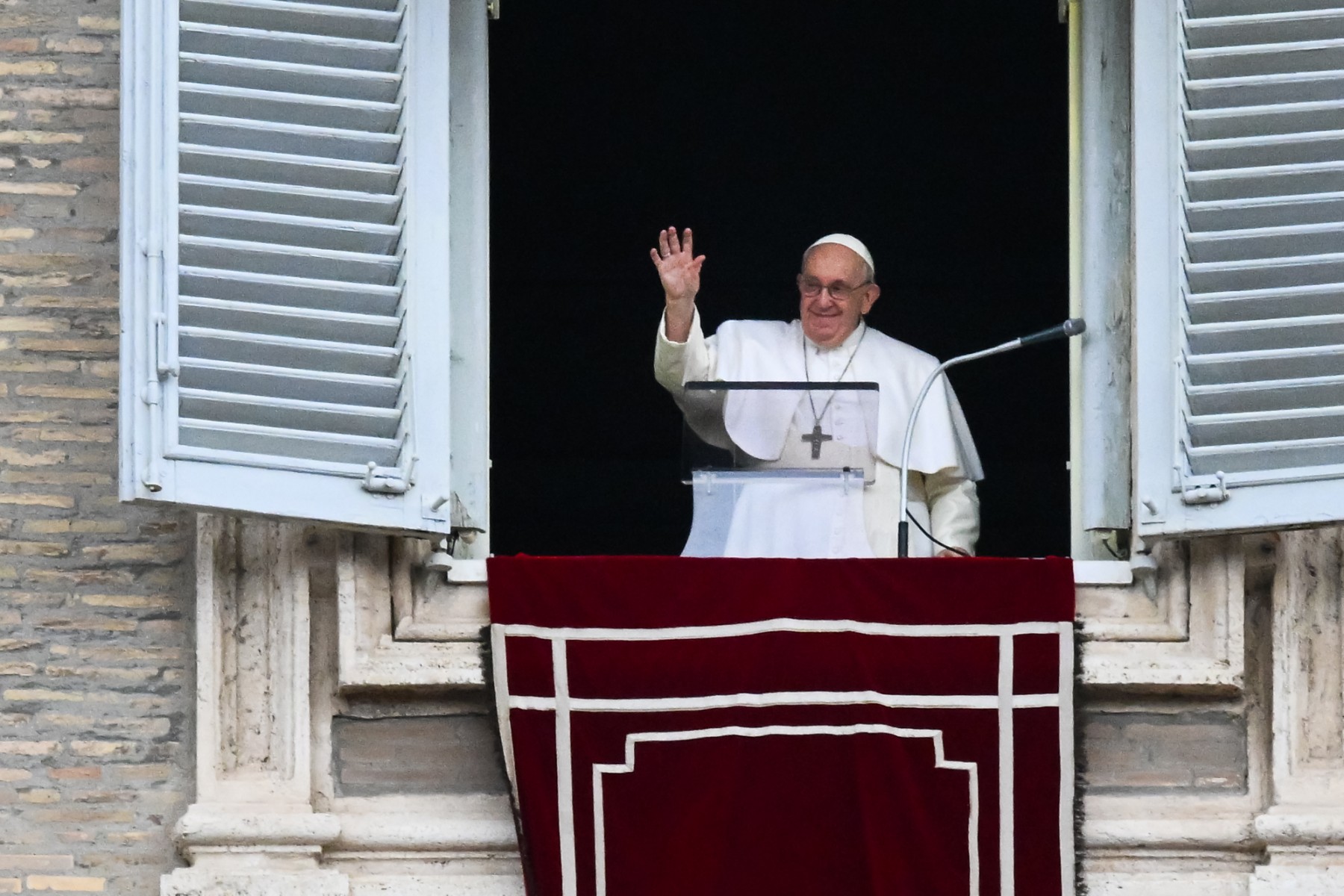Pope Francis said Wednesday that everyone in the Church is equal in dignity, thus a focus on hierarchical advancement is “pure paganism.”
“Within the framework of the unity of the mission, the diversity of charisms and ministries must not give rise, within the ecclesial body, to privileged categories,” the pope said at his March 15 general audience in St. Peter’s Square.
“There is no promotion here, and when you conceive of the Christian life as an advancement, that the one above commands others, because he has succeeded in climbing, that is not Christianity,” he said. “That is pure paganism.”
At his weekly meeting with the public, Pope Francis reflected on the call to apostleship as part of the larger theme of evangelization.
“What does it mean to be an apostle? It means being sent for a mission,” he said, adding that it is also a vocation.
Being an apostle of Christ is not just a matter for bishops or priests but the call of every baptized person, Pope Francis said.
“Who has more dignity in the Church? The bishops, the priests?” he said. “No. We are all Christians in service to others.”
He said a religious sister is just as an important for the Church as anyone else: the baptized, unbaptized, a child, a bishop.
“We are equal. And when one of the parts believes himself to be more important than the others, and he sticks his nose up like this, he errs,” he emphasized.
“The vocation that Jesus gives to everyone, and also to those who seem to be in the highest positions, is service.”
The pope said if you see someone in a “high” position in the Church who is vain, you should pray for “the poor guy,” because he has not understood his vocation.
“The vocation of God is adoration of the Father, love of the community, and service,” he added.
Pope Francis drew from documents of the Second Vatican Council to illustrate what it means to be an apostle today.
“The Council says: ‘The Christian vocation by its very nature is also a vocation to the apostolate,’” he said, quoting the decree on the apostolate of the laity, Apostolicam Actuositatem.
Quoting from Lumen Gentium, the dogmatic constitution on the Church, he said apostleship “is a calling that is common, just as ‘a common dignity [is shared] as members from their regeneration in Christ, having the same filial grace and the same vocation to perfection; possessing in common one salvation, one hope, and one undivided charity.’”
“It is a call that concerns both those who have received the sacrament of orders, consecrated persons, and all lay faithful, man or woman.”
Pope Francis addressed the crowd as he said “the laity — all of you, the majority of you are laypeople, all of you — likewise share in the priestly, prophetic, and royal office of Christ and therefore have their own share in the mission of the whole people of God in the Church and in the world (Apostolicam Actuositatem, 2).”
He encouraged Catholics to consider how they relate to others, both in and outside the Church, in light of apostleship.
“For example, are we aware of the fact that with our words we can undermine the dignity of people, thus ruining relationships? While we try to engage in dialogue with the world, do we also know how to dialogue among ourselves as believers?” he said.
“Listening, humbling one’s self, being at the service of others: This is serving,” he continued. “This is being Christian. This is being apostle.”
“Let us not be afraid to pose these questions to ourselves, to flee from vanity, the vanity of positions,” Pope Francis concluded.
“May these words help us to confirm the way in which we live our baptismal vocation, how we live our way of being apostles in a Church that is apostolic, that is at the service of others.”







